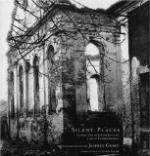And then late one afternoon they came to a bloody spot on the snow. Here Jingoss had killed. Here he had found what had been denied them, what they needed so sorely. The North was on his side. He now had meat in plenty, and meat meant strength, and strength meant swiftness, and swiftness meant the safety of this world for him and the certainty of the next for them. The tenuous hope that had persisted through all the psychological pressure the North had brought to bear, the hope that they had not even acknowledged to themselves, the hope based merely on the circumstance that they did not know, was routed by this one fact. Now they could no longer shelter behind the flimsy screen of an ignorance of their enemy’s condition. They knew. The most profound discouragement descended on them.
But even yet they did not yield to the great antagonist. The strength of meat lacked them: the strength of despair remained. A rapid dash might bring them to grapples. And somewhere in the depths of their indomitable spirits, somewhere in the line of their hardy, Anglo-Saxon descent, they knew they would find the necessary vitality.
Stars glittered like sparks on polished steel. On the northwest wind swooped the chill of the winter’s end, and in that chill was the breath of the North. Sam Bolton, crushed by the weight of a great exhaustion, recognised the familiar menace, and raised his head, gazing long from glazed eyes out into the Silent Places.
“Not yet!” he said aloud.
CHAPTER TWENTY-SEVEN
But the next morning he was unable to rise. The last drop of his vitality had run out. At length the connection between his will and his body had been severed, so that the latter was no longer under his command. After the first moment he knew well enough what this meant, knew that here he must die, here he must lie crushed finally under the sheer weight of his antagonist. It was as though she, the great North, had heard his defiant words the night before, and thus proved to him their emptiness.
And yet the last reserves of the old man’s purpose were not yet destroyed. Here he must remain, it is true, but still he possessed next his hand the human weapon he had carried so far and so painfully by the exercise of his ingenuity and the genius of his long experience. He had staggered under its burden as far as he could; now was the moment for launching it. He called the young man to him.
“I cannot go on,” said he, in gasps. “Leave the sledge. Take the dog. Do not lose him. Travel fast. You must get him by to-morrow night. Sleep some to-night. Travel fast.”
Dick nodded. He understood. Already the scarlet hate, the dogged mad glare of a set purpose was glazing his vision. It was the sprint at the end of the race. He need no longer save himself.
He took a single blanket and the little shreds of dog meat that remained. Some of the pemmican, a mere scrap, he left with Sam. Mack he held in leash.




